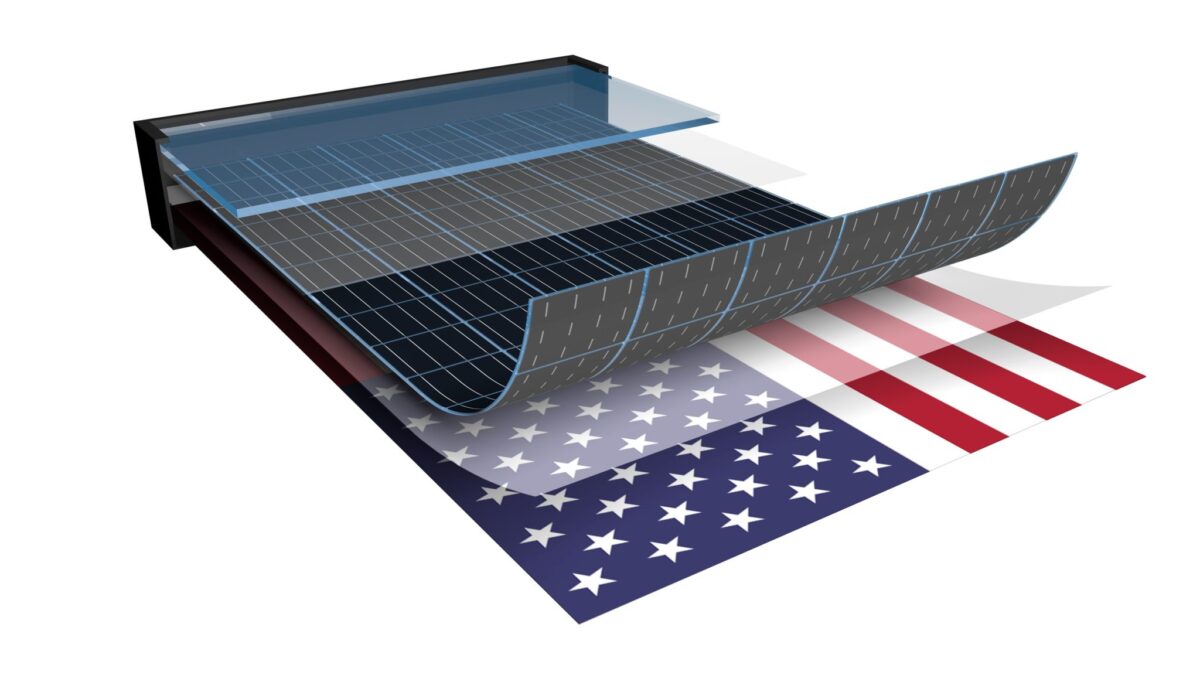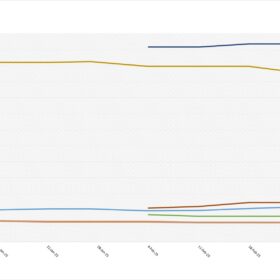From pv magazine USA
With passage of the Bipartisan Infrastructure Law, the CHIPS and Science Act and the Inflation Reduction Act (IRA), the U.S. now has strong industrial policy, and the resulting numbers are staggering in terms of capacity additions, manufacturing investments, and jobs.
Analysts have weighed in on what will happen to these policies under a second Trump administration, and the consensus is that the strong results of these policies will keep them mostly in place. A recent Bloomberg Intelligence report sees these policies potentially under threat, but rather than dismantling unilaterally, changes may be made with targeted cuts.
A clear benefit of the policies is reshoring the American supply chain and jobs. In Q2 2024, U.S. solar module manufacturing capacity increased by over 10 GW to 31.3 GW, and that number will continue rising as more facilities come online. This American-made manufacturing is being felt in the swing states of Arizona, Georgia, Pennsylvania, Nevada, and North Carolina, states that are home to 48% of the announced projects. Along with these projects comes jobs.
“Domestic solar manufacturing has grown four-fold under pro-business federal clean energy policies, and soon, we will have enough American-made solar panels to meet our demand for solar deployment,” said Abigail Ross Hopper, president and CEO of the Solar Energy Industries Association (SEIA), in a statement released after Trump’s win. “Nearly 9 in 10 Americans support these policies, which are uplifting communities in states like Ohio, Texas, Georgia, and South Carolina with thousands of jobs and billions of dollars of investments.”
Another benefit is cost, as the solar industry has successfully driven down the cost of solar energy to the point where solar accounted for 67% of all new electricity-generating capacity added to the U.S. grid in the first half of 2024. In Q2 2024, the U.S. solar market installed 9.4 GW of capacity.
“The market has spoken—clean energy is simply cheaper, easier, and better,” said Brendan Bell, COO of Aligned Climate Capital, a clean energy fund.
A further benefit is the economy and one area of tremendous growth since passage of the IRA is the ability to transfer tax credits, as covered in a presentation during pv magazine USA Week by Crux CEO Alfred Johnson. Lesley Hunter, senior vice president, policy and engagement at ACORE said in a pv magazine USA Week panel that the tax credits represent historic long-term stimulus as demonstrated by the $100 billion investment seen in new clean energy generation projects.
Across party lines, it is clear that U.S. voters support solar and clean energy manufacturing. Nearly 9 in 10 (87%) of polled U.S. voters support federal clean energy tax credits in the Inflation Reduction Act, including 78% of Trump voters.
Executives within the solar industry call for a bipartisan approach to clean energy. JD Dillon, chief marketing officer of California-based solartech manufacturer Tigo Energy sees great momentum being clean energy and said “in a perfect world we would eliminate partisanship from the renewable energy conversation because everyone benefits from a cleaner environment and affordable energy.”
“The march toward renewable clean energy is both inevitable and the right thing to do. It will happen regardless of who is in the White House or Congress. It may slow down or speed up, but it will continue,” Dillon said.
SEIA president and CEO, Abigail Ross Hopper, congratulated President-elect Trump on his win, stating that she looks forward to working closely with his administration “to ensure the solar and storage industry, as well as the domestic manufacturing renaissance we’ve seen over the last few years, continue to thrive and play a vital role in America’s energy economy”.
This content is protected by copyright and may not be reused. If you want to cooperate with us and would like to reuse some of our content, please contact: editors@pv-magazine.com.









By submitting this form you agree to pv magazine using your data for the purposes of publishing your comment.
Your personal data will only be disclosed or otherwise transmitted to third parties for the purposes of spam filtering or if this is necessary for technical maintenance of the website. Any other transfer to third parties will not take place unless this is justified on the basis of applicable data protection regulations or if pv magazine is legally obliged to do so.
You may revoke this consent at any time with effect for the future, in which case your personal data will be deleted immediately. Otherwise, your data will be deleted if pv magazine has processed your request or the purpose of data storage is fulfilled.
Further information on data privacy can be found in our Data Protection Policy.